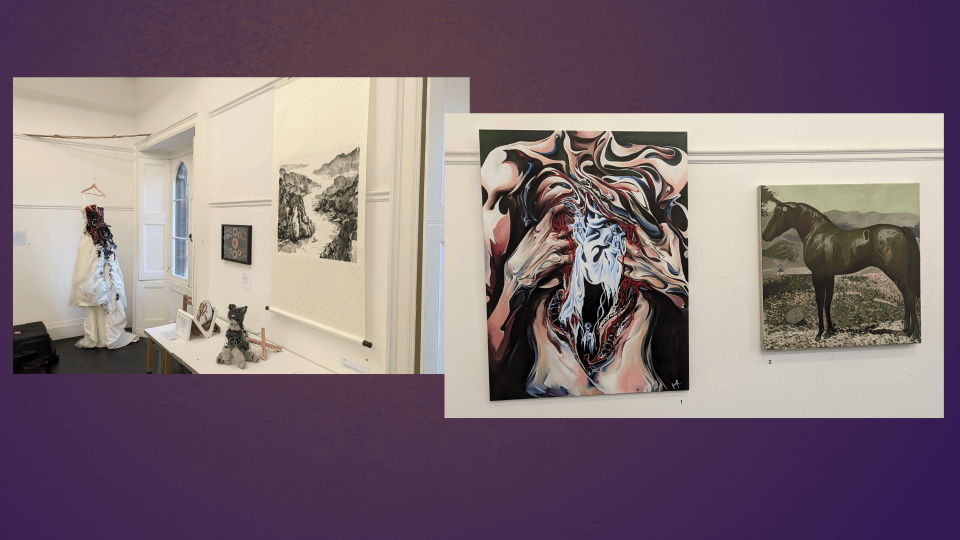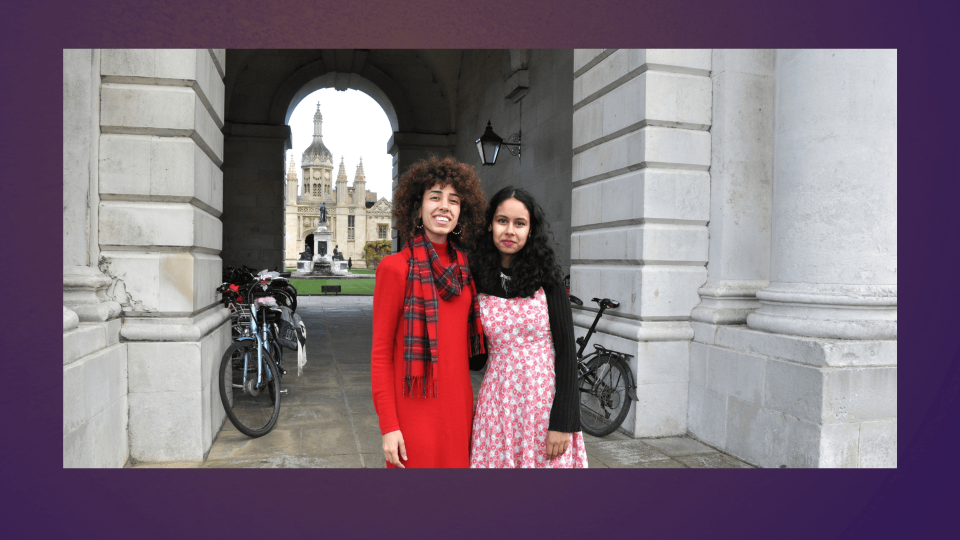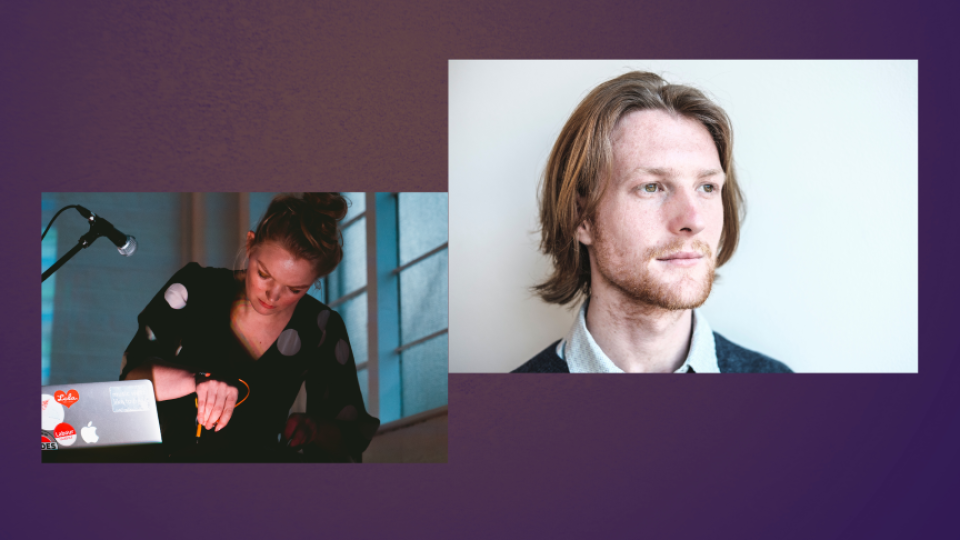Joel is from Sutton Coldfield, just north of Birmingham. He did his A levels in History, English Literature and Government & Politics, as well as an Extended Project on Decolonisation.
Why did you choose to apply for History at Cambridge?
At my school, I had two incredible teachers who nurtured my ‘horrible histories’ - inspired love for the subject and I think that they played a big role in my decision to apply for History. My History teachers were fantastic, as their own love for the subject was as infectious as it was obvious. They pointed me towards subjects that they thought I would find interesting, and even with topics I didn't find attractive they were able to make it interesting. The coverage of Japanese History in A2 was a great example of this, with the incredible amounts of knowledge my teacher had making him a fount of interest for many of the students in my class, and an incredible resource to have at my disposal.
When I was in the lower years at school, I must admit that I was dead set on applying for Law at university, but I was lucky enough to have a conversation with someone in Law who instead advised me to do what I enjoyed and to see where I went from there. I found out during the experience that Law was by no means specific to having a Law degree, and as a result of this I, and the person I was shadowing, thought it far more useful to do a subject that you enjoyed. The flexibility that History would offer me also proved more attractive than Law as I was, and still am, unsure as to what area I want to go into.
I chose Cambridge firstly because by reputation this is the place for History. When I saw the course I realised why. The Cambridge History degree gives students a lot of space to work on their own on what they enjoy and this is in conjunction with some of the best lecturers on offer in the world and one-to-one sessions (called supervisions) with the foremost minds in a huge variety of fields. When I saw that this was the course on offer at such a prestigious university, I was completely sold and thought I had to apply.
How did you approach college choice?
There were several reasons that I chose to apply to King’s, and I am currently very glad that I made that decision. The place looks incredible for starters, and as well as the spectacular buildings, it is fantastically located in the centre of the city, meaning that everything is close.
On top of this (and whilst I would take this with a pinch of salt) looking online at reputations and reviews of the various colleges, King's seemed to be described consistently as welcoming and looked less formal and imposing to me as a result. Given that I haven’t had too much contact with other colleges, it is difficult to compare too readily, but there are two things that I can vouch for: firstly that the people here are generally very warm and friendly and secondly that it is not ridiculously formal. These are aspects of College life that I am very pleased about.
As a result of the easy-going social atmosphere at King’s, I think myself and the majority of people in my year have had no trouble finding a group of friends. If you are worried about fitting in, apply to King’s and I very much doubt that you’ll have to worry.
How does the teaching work in your course?
Supervisions are one-on-one or small group sessions for which I am set an essay on a part of the topic in question. I read up on that topic to answer the essay question and thereby think and learn about the topic for the exams that come at the end of the second year (with mocks on two papers at the end of first year).
Supervisions can be really interesting opportunities as you have almost exclusive access to some of the most knowledgeable minds possible on the subject that you’re studying, so I recommend you pick the brain of your supervisor so tht you find out as much as possible for each topic in the hour you have them for. Other knowledge and facts will come in the form of lectures, which give a good context to the papers you’re taking throughout each year.
The most interesting essay that I have written for a supervision this year was about the causes of the north-south split in antebellum America, with my conclusion ending up vastly different from my assumptions before starting the course. Paper 22 (North American History from c. 1500 to 1865) has proven to be endlessly surprising, as have the other two papers, on Tudor and Stuart England, in attacking vague historical assumptions about the causations and motivations in famous historical events, as well as unearthing new ones.
The lectures, and the seminars that are sometimes also run, give you access to the other fantastic minds within the History department on your paper and these are again great opportunities.
Facilities-wise, don’t worry remotely. Any book on the reading lists you are given will be in one of the three main libraries for historians (your College library, the History Faculty, or the University Library). Most of the course is reading, which can be quite solitary, but I took to reading in the King's library with friends from other courses which meant I wasn’t just holed up in my room.
How did you find the transition from school to university?
One of the questions that was certainly on my mind throughout the application process was how the transition process would be from my school to the Cambridge life and workload. I would be lying to you if I said that there was not a significant step up, but I also think that it is something that is eminently manageable.
There is a step up in the amount of work that is required (they want at least 40 hours work a week), but if you think about how much time you spent at school, it’s not too much more than that, even if it requires that you’re a bit more focused. We take five papers out of a possible twenty-two over the first two years. There are various requirements you have to fulfil within this, but there’s still a good amount of choice.
University work is far more individual than your time will have been at school, as you need to take the notes yourself for revision from a mixture of the supervision reading and the lectures. Whilst this may seem daunting, it’s not nearly as much of a step up as it sounds since, as long as you knew how to revise at school with your own notes, it’s just an extension of this throughout the year. I stress that you shouldn’t worry at all about this as if you begin to struggle - from what I understand, most supervisors are pretty flexible and friendly when confronted with issues - just be honest and it is very likely everything will be fine with them.
What about your social life in Cambridge?
Being very much into sport, I am a part of the cricket, hockey and badminton teams, but there are opportunities for everything: drama, music, board games and kayaking to name just a few of a huge number. There is definitely time to do a large number of these and more - in terms of its social scene, Cambridge is a buzzing student city so any considerations about whether you can live the ‘Uni life’ at Cambridge should take this into account. Whilst studying here, I have still had enough time to do a great deal of things.
As a result of the huge number of interests covered by the societies, finding people with similar interests was not something that troubled me - in fact, it's something that I think makes finding mates in Cambridge much easier. There is enough down-time, and enough opportunities to do things with people of similar interests, that I’ve had no problems at all in making friends in the first year. Personally, I stuck to collegiate societies so the majority of friends I have made are at King’s, though in a variety of subjects, but I know that university-wide societies, in particular Drama, are fantastic opportunities to meet with people from many different colleges, if you want to.
Where was your accommodation this year?
My room this year was in the Spalding accommodation out the front of College. In terms of accommodation in general, I can’t say my room was fantastic this year, but I should explain that in the Spalding accommodation, there's a large range of different rooms and I was just unlucky - my room was an exception to a rule of very good first-year rooms. Keynes (the other first year accommodation) is also pretty good in terms of facilities - it is more like living in a hotel than the older Spalding, but Keynes does give each person their own bathroom. Both first year accommodation options are very central and ideally placed for getting around the city - it's a huge advantage of being at King’s.
Next year, I am living in Garden Hostel, a place in the big garden opposite the Sidgwick site where my lectures are (which is good and bad), and next to the cricket nets we practice in (which is definitely good). Even if you aren’t overly satisfied with your first year room, things normally improve. We have a ballot system for room allocation at King’s, which is far better than the results-based one at some other colleges and means that you are likely to get a much better room from second year, Even if you're unlucky, you’re still likely to get good accommodation for the majority of the time you’re at Cambridge.
Did you do anything to prepare for your application?
For preparation, I went over my AS and A2 courses (what I had covered so far) and read books about theories of historical patterns, the most interesting of which was "What is History" by E.H Carr, with this luckily combining to help me as it meant I could apply historical theory to concrete examples in my interview, which was incredibly helpful and I think helped me in my interviews. In terms of recommending books for people, E.H Carr was incredibly helpful as an introduction, and the update "What is History Now?" added a modern way of understanding history as a general topic - both will not set you far wrong in my opinion.
What advice would you give to students considering an application?
It's important to make sure that you are realistic about what studying at a university like Cambridge involves and have thought about whether this is right for you, since it is a tough course. For me, this year has been one with some moments requiring real hard work and toughing out the need to do a lot of revision or reading, so I would be lying if I said that it has been easy and utterly wonderful. However, it has also been a year in which I have learnt a lot, made friends and accumulated some very good memories, including the spectacular King’s Affair, the ridiculous cardboard boat race and in all honesty, good times just sitting around at various points and relaxing, watching various sitcoms with mates from the uni.
August 2016


